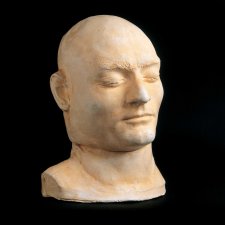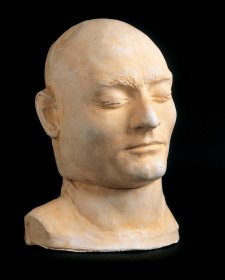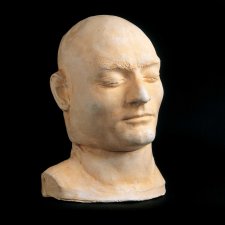- About us
- Support the Gallery
- Venue hire
- Publications
- Research library
- Organisation chart
- Employment
- Contact us
- Make a booking
- Onsite programs
- Online programs
- School visit information
- Learning resources
- Little Darlings
- Professional learning
Thomas Muir (1765-1799), lawyer, political activist and political convict, began studies at the University of Glasgow at the age of twelve. Having graduated in law in 1782, he proceeded to the University of Edinburgh, and was admitted to the Faculty of Advocates at the age of twenty-two. In 1792, his radical opinions fired by the French Revolution, he read in public an inflammatory address from the United Irishmen of Dublin (who were outlawed the following year). Also accused of distributing a seditious pamphlet by Thomas Paine, he was arrested in 1793. On bail, he went to France; having failed to turn up for his trial in Edinburgh he was declared an outlaw and struck off. Re-arrested on a clandestine visit to relatives, he was brought to trial and sentenced to fourteen years’ transportation. Despite the protests of influential London Whigs, the sentence was upheld and Muir, with three fellow reformers, sailed in the Surprize to arrive in Sydney in late 1794. Here he ran a small farm and worked on documents with a view to exculpating himself and his fellow ‘Scottish Martyrs’. In 1796 he escaped Sydney on an American fur-trading vessel; at Nootka Sound he transferred to a Spanish ship, making Monterey in Spanish California. In Havana later in 1796, he boarded a frigate sailing for Spain, which was then at war with England. In a maritime skirmish he was severely wounded in the face and lost an eye. In 1797 he reached Paris, where he received much attention; he died in France, impoverished and obscure, two years later.
Collection: National Portrait Gallery
Purchased 2011



On one level The Companion talks about the most famous and frontline Australians, but on another it tells us about ourselves.



Death masks, post-mortem drawings and other spooky and disquieting portraits... Come and see how portraits of infamous Australians were used in the 19th century.



Visit us, learn with us, support us or work with us! Here’s a range of information about planning your visit, our history and more!